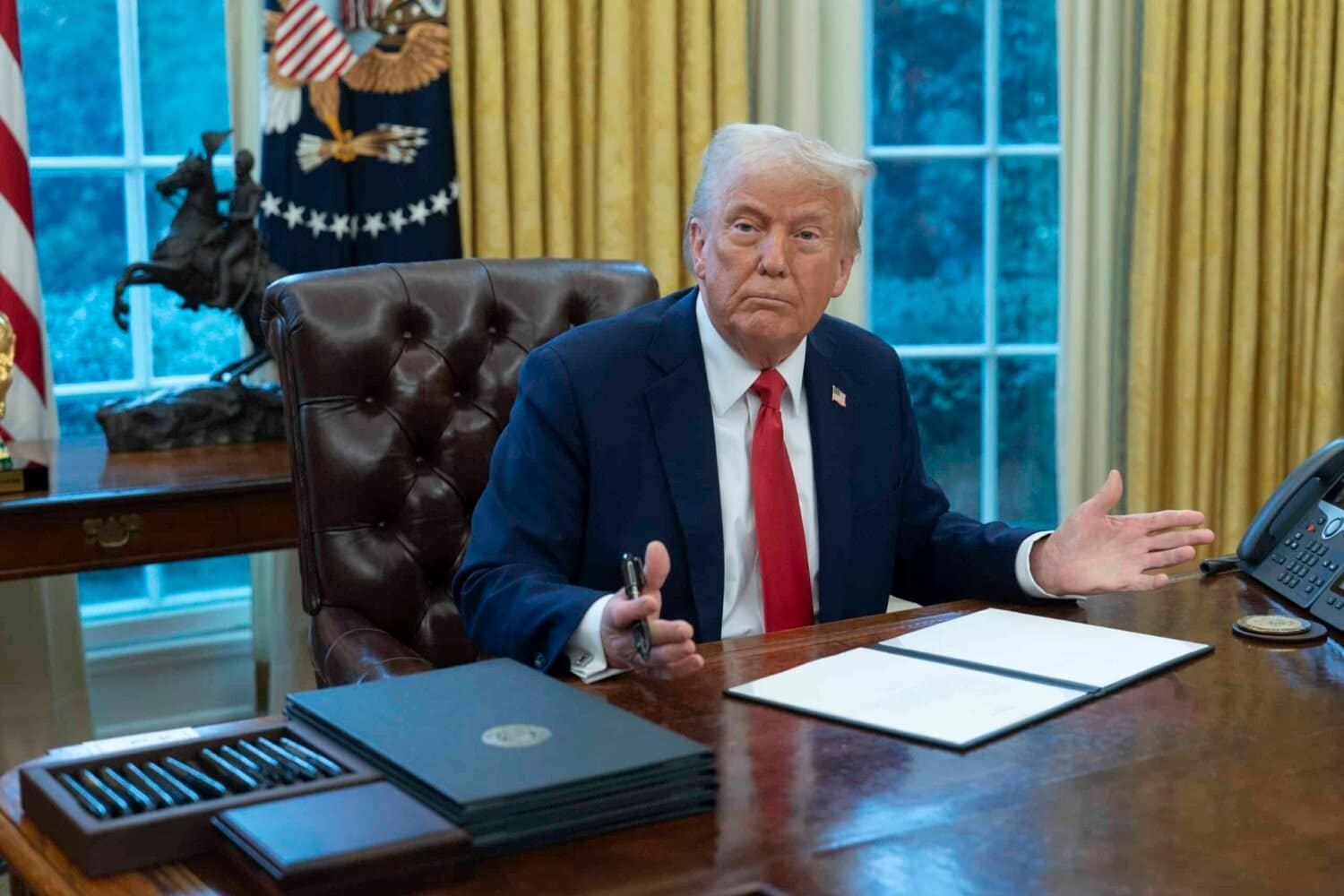Companies described as “between silence, ignorance and concern”
Portuguese companies are described as “between silence, ignorance and concern” following letters sent out by the US government last week informing them they must abandon policies of ‘diversity, equity and inclusion’ (DEI), or risk not being paid.
The companies have contracts to supply goods and services to the US. According to reports, they include Vodafone Portugal, Fidelidade, Mota-Engil, GALP, Caetano Automotive, CTT, Allianz Portugal, MEO and law firm Rui Pena, Arnaut & Associados (currently CMS Portugal).
In line with what has been happening throughout Europe, companies began receiving letters last week, essentially telling them they had to fall in line with US thinking on DEI, or they would no longer receive payments.
The ultimatum, unsurprisingly, has been met by resistance in countries like France and Spain
France’s minister for equality between men and women and combating discrimination, Aurore Bergé, said it was “a form, obviously, of interference (…) an attempt to impose a diktat on our businesses”. “Many” companies have told the government that they do not plan to reply to the letters (see below): “It is out of the question that we will prevent our businesses from promoting social progress”, she told Euronews.
Spain too – where instructions have been sent to a wide range of firms, including those supplying the homes of US embassy staff with water, gas, electricity, food, even newspapers – has reacted negatively, saying the American directive is a “flagrant violation” of the country’s strict anti-discrimination and diversity laws.
What do the letters say?
According to France’s Le Figaro, the letters sent out to French companies by the US embassy in France say: “All Department of State contractors must certify that they do not operate any programs promoting DEI that violate any applicable anti-discrimination laws”.
Recipients are asked to “tick a box to confirm that they do not operate any programs promoting Diversity, Equity and Inclusion that violate any applicable anti-discrimination laws.
The letters add: “If you do not agree to sign this document, we would appreciate it if you could provide detailed reasons, which we will forward to our legal services”.
Embassy confirms it is conducting “standard review of contracts with suppliers”
According to ECO online, a source for the US embassy in Lisbon has confirmed that it is conducting what it calls a “standard global review of contracts, which applies to all suppliers and recipients of US government grants. This process includes a request for certification to ensure compliance with US anti-discrimination laws”.
The process harks back to the executive order signed by President Trump in January to end “unlawful discrimination and restore merit-based opportunities”. According to the order, “critical and influential” institutions in US society, including the federal government itself, large companies, financial institutions and institutions of higher education have adopted “dangerous, degrading and immoral preferences based on race and sex” under DEI programmes, which “may violate civil rights”.
And thus the ‘chainsaw carnage’ perpetrated with the help of Elon Musk which has seen so many people now protesting in the streets – not only of America but in countries where US expats have chosen to build/ spend their lives.
Thus, the big question, can the United States, actually impose its will on foreign companies providing goods and services abroad? Lawyers are divided – and the companies in receipt of these letters are staying schtum.
Says ECO, the US embassy hasn’t specified how many letters have been sent out, or to whom, while “the overwhelming majority of companies” approached by journalists “simply didn’t reply (…) some even claimed not to have received any communication”.
But what are the contracts in question? ECO explains there are “mainly three blocks. The first relates to services provided to the US embassy in Lisbon itself, which naturally buys locally. There is everything from Vodafone’s telecoms services, to gardening work and Allianz’s health insurance as well as CMS’s legal support services”.
A second large block are contracts in the Azores, related to the Lajes Airforce Base (used by the Americans for decades), with various local suppliers, such as security guards, cleaning staff, transport services and even a funeral parlour, as well as GALP Açores, which sells fuel to the base.
“And there is a third, more general block, which includes, for example, the contractual relationship between Fidelidade and the US Air Force, based on insurance cover. And Meo’s provision of services to the Defence Information Systems Agency (DISA) and, before that, to the Air Force”.
In theory, the United States has no right to force EU companies to end their diversity, equity and inclusion programmes. But in practice, since it is a question of ‘determining the conditions under which it is possible for companies to supply goods or services to the US administration’, they can, suggest lawyers.
José Luís Cruz Vilaça, the partner responsible for European Union Law, Competition and Foreign Investment practice at Antas da Cunha Ecija, tells ECO. “If you don’t comply with the rules, you won’t be accepted as a supplier”.
“Basically, it’s a political issue, where the logic of power and law oppose each other. The governments of the member states and the institutions of the European Union will eventually be called upon to intervene and, if necessary, to retaliate. European companies must essentially mobilise to obtain the support of these institutions,” stresses Cruz Vilaça.
Márcia Martinho da Rosa, of MMR Legal Services and a former member of the Bar Association’s human rights committee, argues that “these letters are not binding, since in the European Union these companies are governed by international treaties of each state, EU law, namely European regulations and directives’”.
“It is inconceivable for the US to interfere in this matter as far as the Member States are concerned,” she tells ECO.
There is equally the position that it all depends which legal system will regulate contractual relationships between European companies and the US government.
Whatever the case, it is not surprising that Portuguese companies are staying very quiet about these letters. Events are moving so fast at the moment, Portuguese words like ‘caution’ and ‘prudence’ – even ‘serenity’ and ‘tranquility’ – would seem to be the best refuge.
Source material: Euronews/ECO online

























